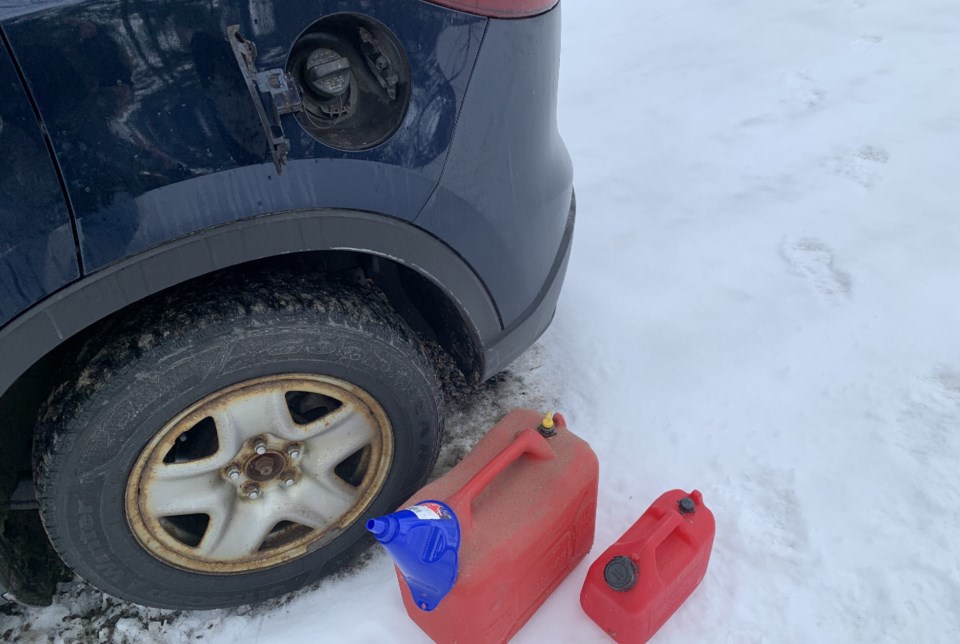NORTH BAY - It seems like we hear of some kind of road closure every day during the winter months. To avoid getting stranded police say to keep your tank at least half full, that way you will have plenty of gasoline to help warm your car.
"Ontario's winter weather can be very challenging at times, often exposing drivers to a wide range of weather and road conditions that can change drastically in a matter of hours," cautions Constable Nathalie Muirhead. "And as a driver, it is best to be prepared for whatever Mother Nature throws your way!"
She also advises keeping your vehicle full of fuel while travelling.
"Road closure may cause motorists to remain stopped on the highways for several hours. It is best to carry a winter survival kit with you while travelling, which may include extra clothing, winter boots, blankets, non-perishable foods, a phone charger, and a candle with waterproof matches, which can help heat the interior of your vehicle if it stalls or you become stranded."
"One of the best investments you can make to prepare your vehicle for winter driving is to install four winter tires. While all-season tires may be adequate in some areas of the province, they are not made for driving in snowbelt regions and throughout the north. Winter tires will provide greater stability and control of your vehicle and will help to reduce stopping distances in slippery driving conditions through snow, slush, and ice."
Before you hit the road, check weather and travel conditions and do not take chances if the weather is bad. BayToday often carries weather warnings and road closures. You can also download the free Ontario 511 mobile App that provides real-time highway conditions and traffic information.
"If winter driving conditions make you nervous, uncomfortable, or fearful when you are behind the wheel, stay off the road unless your trip is necessary," advises Muirhead.
"Look far ahead when you drive so you can recognize hazards in advance and have plenty of time to respond. Adjust your driving to current weather and road conditions and reduce your speed when the roads are slippery or slushy. Remember that bridges and overpasses freeze more quickly and stay frozen longer and black ice on the road can cause your vehicle to suddenly lose control."
